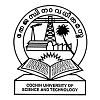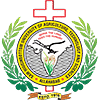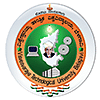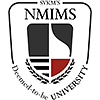BA Accountancy Syllabus and Subjects

The BA Accountancy program is a three-year undergraduate course in accounting, finance, and commerce that is divided into six semesters. Accountancy, Finance, Economics, Marketing, And Business are all covered in the BA Accountancy course syllabus. This course's subjects vary depending on specialization and institute.
Semester Wise BA Accountancy
The BA Accounting syllabus covers everything from basic commerce and finance to market, economic, and taxation laws in the country. The BA Accountancy course is designed to give students a thorough understanding of the subject. The syllabus includes three theory papers, namely Finance, Commerce, and Economics, as well as two practical accounting papers. Semester-wise BA Accounting subjects list are given in the table below:
|
Semester I |
Semester II |
|
English |
Economics I |
|
Financial Accounting I |
Business Math and Statistics |
|
Business Regulatory Framework |
Principles and Practice of Management and Business Communication |
|
Semester III |
Semester IV |
|
Information Technology and Applications in Business |
Economics II |
|
Principles of Marketing |
Financial Accounting II |
|
Advanced Business Math |
Direct and Indirect Taxation |
|
Semester V |
Semester VI |
|
Financial Accounting III |
Cost and Management Accounting |
|
Auditing |
Environmental Studies |
|
Economics III |
Project |
Also Read on BA Syllabus and Subjects
BA Accountancy Subjects
The subjects in BA Accountancy include both theoretical and practical components. The course's goal is to prepare students with knowledge of Laws, Finances, Taxation, And Economics. Elective subjects are also included in the course. The BA accountancy course subject list includes:
- Finance Management
- Accounting
- Business Mathematics
- Economics General and Applied Theory
- Taxation
BA Accountancy Course Structure
The BA Accountancy course syllabus is divided into six semesters with courses divided into practical sessions and theoretical papers. The structure of the course focuses on making students familiar with terminologies and concepts of the finance world and preparing them for taxation and commerce laws. The course structure is given below:
- IV Semesters
- Core Subjects
- Elective Subjects
- Practicals
- Projects
BA AccountingTeaching Methodology and Techniques
The course curriculum incorporates a variety of teaching methods. Project sessions and workshops from corporate industries are offered in addition to classroom learning. The following are general teaching methods and strategies:
- Conceptualized Learning
- Traditional Classroom-Based Teaching
- Practicals
- Group Discussions
- Presentations
BA Accounting Projects
Students are assigned projects to help them understand concepts and gain hands-on experience. The projects must be completed by the end of the sixth semester. Some popular BA Accounting project topics are:
- The dilemma in Accounting Ethics
- Debt Management
- Ways to Escape Financial Fraud
- Issues with normative theories of accounting
BA Accounting Reference Books
BA Accounting requires a lot of practice since it is a mathematics-based course. It is advised that the students start preparing for the course after graduating from high school. There are a lot of books available for reference in accounting. Some of the reference BA Accounting books for the course are:
|
Name of the Books |
Authors |
|
Accounting an Introduction |
Peter Atrill |
|
Fundamentals of Corporate Finance |
Stephen Ross |
|
Modern Auditing and Assurance Service |
Philomena Leung |
|
Company Accounting |
Ken Leo |














